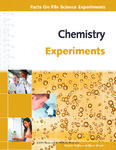Please use this identifier to cite or link to this item:
http://lib.hpu.edu.vn/handle/123456789/28098Full metadata record
| DC Field | Value | Language |
|---|---|---|
| dc.contributor.author | Walker, Pamela | en_US |
| dc.contributor.author | Wood, Elaine | en_US |
| dc.date.accessioned | 2017-11-15T02:29:20Z | |
| dc.date.available | 2017-11-15T02:29:20Z | |
| dc.date.issued | 2010 | en_US |
| dc.identifier.isbn | 0816081727 | en_US |
| dc.identifier.isbn | 9780816081721 | en_US |
| dc.identifier.other | HPU5160769 | en_US |
| dc.identifier.uri | https://lib.hpu.edu.vn/handle/123456789/28098 | - |
| dc.description.abstract | “Doing” science means performing experiments. In the science curriculum, experiments play a number of educational roles. In some cases, hands-on activities serve as hooks to engage students and introduce new topics. For example, a discrepant event used as an introductory experiment encourages questions and inspires students to seek the answers behind their findings. Classroom investigations can also help expand information that was previously introduced or cement new knowledge. According to neuroscience, experiments and other types of hands-on learning help transfer new learning from short-term into long-term memory. | en_US |
| dc.format.extent | 194 p. | en_US |
| dc.format.mimetype | application/pdf | en_US |
| dc.language.iso | en | en_US |
| dc.publisher | Facts On File | en_US |
| dc.subject | Chemistry Experiments | en_US |
| dc.subject | Chemistry | en_US |
| dc.subject | Science Experiments | en_US |
| dc.title | Chemistry Experiments (Facts on File Science Experiments) | en_US |
| dc.type | Book | en_US |
| dc.size | 4,940Kb | en_US |
| dc.department | Technology | en_US |
| Appears in Collections: | Technology | |
Files in This Item:
| File | Description | Size | Format | |
|---|---|---|---|---|
| 769_Chemistry_Experiments.pdf Restricted Access | 4.94 MB | Adobe PDF |  View/Open Request a copy |
Items in DSpace are protected by copyright, with all rights reserved, unless otherwise indicated.
